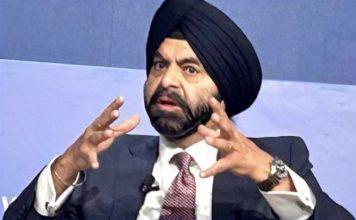The World Bank has called for more transparency on oil revenues, especially with regard to the profits that the Nigerian National Petroleum Company Limited (NNPCL) made from the subsidy removal.
The Washington-based made the appeal in its Nigeria Development Update, December 2023 edition titled, ‘Turning The Corner (from reforms and renewed hope, to results).
Wale Edun, the Minister of Finance and Coordinating Minister of Economy, stated that the government was ready to scrutinise the revenue flow from the NNPCL.
The World Bank Director explained that, “The basic point I think our team has been trying to understand is premium motor spirit (PMS) subsidies earlier were costing about N400 billion per month, and now are those revenues now coming into the federation account, or has oil production dropped to the point where those N400 billion in revenues has gone and it’s really about helping us.
“But not just as the Nigerian public understand because a lot of the Nigerian public view the removal of PMS subsidies is well, we’re going through this pain, is there a reward from that? I think that’s the main thing, and the NNPCL can just clarify what exactly is happening with the funds coming. That would really help.”
“Nominal oil revenue gains have been evident since June; these are mostly categorised as “exchange rate gains”, suggesting that they are due to the naira depreciation.
“Except for the exchange rate-related increases, however, there is a lack of transparency regarding oil revenues, especially the financial gains of the Nigeria National Petroleum Corporation from the subsidy removal, the subsidy arrears that are still being deducted, and the impact of this on Federation revenues. It is also unclear why retail petrol prices have not changed much since August, despite fluctuations in the exchange rate and global oil prices.”
It added that, “However, most of the gains in the oil revenues in H2 2023, as reported by OAGF, can be attributed to exchange rate gains. Without exchange rate gains, net oil revenue between January and August would have declined by 0.2 of a percentage point of full-year GDP yoy, all materialising in the July–August period.
“In August, additional revenue from 40 per cent profit of Production Sharing Contracts and the interim yearly dividend were reflected in the accounts. However, these were not as high as what the gains from removing the gasoline subsidy should have been. Given that petrol pump prices have not changed in line with market fundamentals (notably exchange rate movements and global oil prices), there is a risk that the implicit fuel subsidy has reemerged, potentially keeping net oil revenues lower than expected.”
